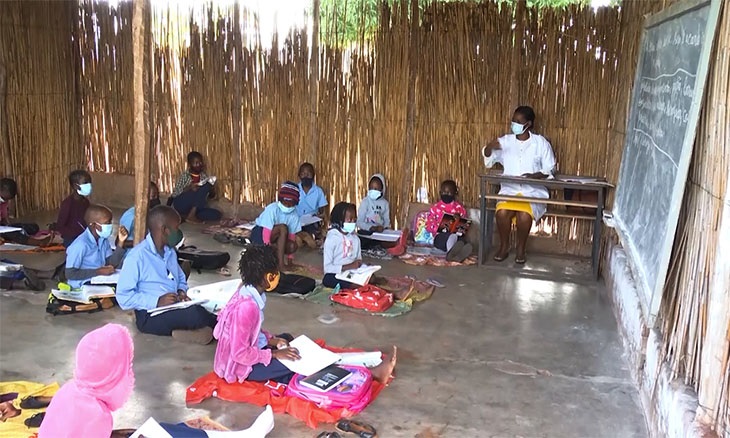Making sure crime doesn’t pay: How recovered assets from criminal activities help Mozambique to ...
Mozambique: Only six out of 100 primary school students can read and write “well” – O País

Photo: O País
Only six in every 100 primary school children in Mozambique acquire the desired level of reading and writing proficiency, revealing the extent of the challenges facing the national curriculum.
The figure is among the results obtained in the first, 2013, national assessment of level of competence of primary education students, national director of Teacher Education, Remane Selimane, revealed at the launch of a project aimed at improving the quality of primary education on Friday (June 4).
“We had two national assessments, one in 2013 and another in 2016,” Selimane said, “and the results were not very good as regards reading, writing and other competences the curriculum defines as basic. This is worrying.”
The big problem is in primary education, Remane explained which is why a review of the teaching programme was one of the foci of the project. The intention is to adapt the programme to international standards, as studies indicate that there are many differences between the national and international curricula.
“An adjustment that will be made [to the Mozambican education curriculum] to match international standards, and school books will also be adapted. Our classes sound very expository and we are battling to put students in touch with experimentation, with actual examples, and then transforming that into knowledge. We have not yet managed to reach this stage,” Remans detailed.
Minister of Education and Human Development, Carmelita Namashulua, in turn noted that the curriculum expansion project, which starts this year, will run until 2027, and covers the subjects of Mathematics and Natural Sciences from 1st to 6th grades.
Minister Namashulua says the project would strengthen the initial and continuous training of teachers and the educational assessment system in the subjects in question.
“These actions, which will involve, in particular, schools attached to teacher [training] institutions, will launch a process of continuous training covering all primary school teachers. Evaluation of the efficiency and effectiveness of the system will also be reinforced,” she said.
Minister Namashulua believes that these actions will improve teacher’s performance in the areas of mathematics and natural sciences, where teachers and students experience the greatest difficulty.
The project is supported by the Japan International Cooperation Agency (JICA), which agency representative Hiroaki Éndo says hopes to reduce the levels of school dropouts.
“Given the challenges we face in relation to improving reading, writing and arithmetic, this project will increasingly help to improve access and quality of education, which will allow us to mitigate the effects of school dropouts and failures,” he explained.
During the six years of the project’s implementation, the JICA interventions will be focused on curriculum development and the curriculum management cycle, the development of textbooks and teaching materials, the educational assessment system and initial training and continuing education, Endo concluded.
By Julieta Zucula












Leave a Reply
Be the First to Comment!
You must be logged in to post a comment.
You must be logged in to post a comment.